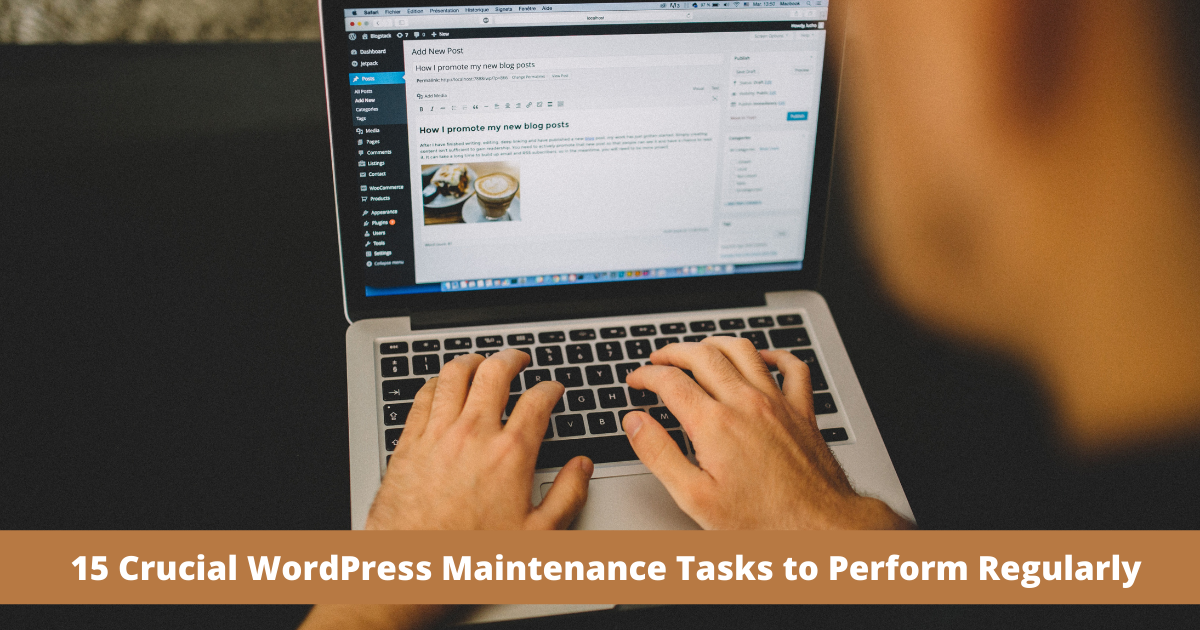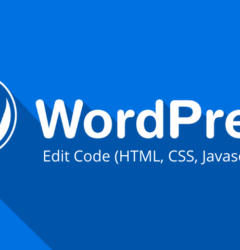15 Dec

Voila! Now, you have your business identity live on the web Your WordPress website.
You have opened a virtual shop that remains open for 24-hours.
Now, your divine duty is to focus on the business that it brings to you, right?
Sure, but wait a minute. Think, your website may crash or perform poorly and you may lose everything you gain like ranking, traffic, and conversions.
Now, it is time to think of regular maintenance of your website. It may help you to avert anything that occurs unwanted. You should be proactive and know about A to Z of maintenance in advance.
Running a WordPress website demands a close eye on a few things viz.
- Hosting
- Updates of WordPress Core
- Following updates of themes
- Following updates of plugins
- Following updates of APIs
Definitely, it’s daunting to follow frequent updates of WordPress core, but it’s inevitable at all. And it is the reason WordPress website demands two types of maintenance: short-term & long-term. Regularity in maintenance is the key to success to keep your website healthy and better performing.
15 Crucial WordPress Maintenance Tasks
Today, I am acknowledging you 15 crucial WordPress maintenance tasks to perform regularly.
#1 – Check for Updates
40% of websites of the world have WordPress as a core source. So, it has more enemies than any other platform as far as site security is concerned. Moreover, WordPress has to stay ahead in all front of its numerous competitors.
These ultimate facts lead the platform to constantly release various kinds of updates in its core source and this is the reason that WordPress is releasing overwhelmingly frequent updates.
In sum, you have to follow those updates without missing anyone and as soon as possible.
Now, once you take updates of the core source, you need modifications in attached components and dependent elements immediately to keep compatibility and performance intact.
It is the reason that WordPress theme developers and plugin developers are constantly following the core updates on the platform by releasing their updated versions.
As per our experience, if you run a big blog or website, you have to follow updates on an almost daily basis, thanks to a number of themes and sub-themes as well as a squad of plugins and API integration.
#2 – Take Full Backup
Heavy traffic and increased activities on your WordPress website during the Holiday Season or in your events can crash your website. Similarly, you can face natural or human-made disasters anytime. In such odd situations, you must have a safe backup of your website.
Today, we have multiple ways to store a full backup of your website. For instance, on the cloud network that offers storage spaces, your local machine, extra disc, or any other means of storage can save your website backup.
Remember to take a full backup that must contain the core source, database, plugins, and other components.
#3 – Check for Site Security
We are in the midst of the holiday season. A sudden spike in traffic is expected. There may be a crash or hang/halt of your website is expected. The site can start running slowly. Your website may prone to attacks of hackers or malicious elements on the web.
If you want to give the best user experience and get the maximum out of the Holiday Season, you must have close monitoring, scanning, and updating your WordPress website. So, check for the site security aspects right from keeping your login credential secure and strong to installing anti-virus & anti-malware software are expected security measures.
#4 – Check for Speed & Performance
The loading speed of a web page is a ranking factor for search engines. If you don’t take care of it, you will lose ranking and traffic at once. There are multiple ways to optimize your WordPress website for fast loading and you have to implement whatever applies to your website.
Another important aspect is site interactivity. If your website takes a longer response time for action like a click, it kills the user experience (UX) and you may lose the business or conversion. Check for site performance and remove glitches.
#5 – Check for Responsive Web Design
Today, the majority of web traffic comes from mobile devices like smartphones and tablets. Moreover, web surfers are using multiple devices to accomplish buying like important tasks. For example, an eCommerce prospect searches the products through mobile devices but accomplishes the checkout process with a desktop or laptop.
In sum, your website must have a responsive design that can give a seamless user experience across the different devices.
#6 – Check for Broken Links
Link building is an essential activity for your website. It is a process that never ends. However, over time some websites, which you’ve linked with your site close forever or change their name/URLs. It results in broken links in your web pages.
Today, we have tools to find out broken links on your website and renew them according to their present status or remove them at all. You have to carry this activity periodically.
#7 – Check for Errors & Fix Bugs
Coding error, execution error, plugins error, module error, and different kinds of errors are a possibility you can check WordPress common error guidelines or troubleshooting guidelines to mitigate the issue.
However, the best and advisable thing is consulting a programmer to manage bugs and errors. It is their job as a technician.
#8 – Check for Redirects
When a web page is no longer exists on your site but users have an old URL for the same and try to access it, the user meets a 404 error message/popup.
Technically, a 404 error is an HTTP status code and you have an opportunity to redirect your users to a relevant web page on your site.
The same applies to other error pages.
#9 – Check SEO Factors
Regular checkup for ranking status on SERPs is a good habit to catch any SEO mistake you are going to commit. However, Google Analytics and Google Console are good places to get insights into various SEO factors and change or implement new SEO strategies accordingly.
#10 – Check SMO Factors
Social media signals for your website are one of the ranking factors in search engine algorithms. Check the presence of social media icons and their links on all web pages and blog posts. Users often directly share the blog posts on social media and you can earn a good reputation on different media.
#11 – Update Old Content
Today, we have some good content audit tools. We can pick the old content pages with old information. Try to rewrite the content and update the information. Search engines like it and give you appropriate rewards in ranking.
#12 – Remove Unused Themes & Plugins
Unused themes, child themes, and plugins are a kind of burden to the website and leave a bad impact on overall performance in long run. You should remove them or replace them with more useful components.
#13 – Optimize Database
WordPress is extensively using databases for most types of data including info, texts, Meta, and images. We have some tools to segregate unused data in the databases and remove them safely without hurting the site performance.
#14 – Optimize Images
Images on a website are a precious asset but costly too! Images can consume a lot of memory and CPU power while in storage as well as rendering. Therefore, image optimization is the way to keep maximum images without losing their performance on the screen of any device.
We have various tools to optimize images before uploading as well as after the upload in the image library/gallery.
#15 – Optimize Textual Content & Code
Unlike images, we cannot compress texts before loading, but we can do the same after loading. Similarly, we can compress the code and make rendering speedy without losing the effectiveness of the content and code.
You might have noticed that the majority of tasks are repeating themselves as well as concern to WordPress developers or WordPress programmers. So, why shouldn’t find out the best WordPress experts who know the WordPress maintenance job well and are good at it?
WP Agents have accumulated WordPress talents and trained them to make your life easy. Hire WordPress Maintenance Developers or select a suitable package and take a sigh of relief. It also will help you focus on the core tasks of your business instead of messing up with WordPress-like technical platforms.








